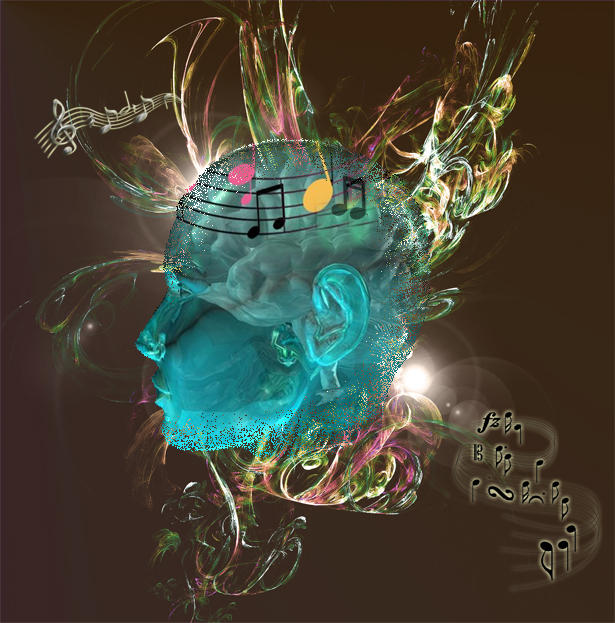 As string players, we develop brain areas that others do not. Other musicians develop unique brains, but string players are subjects of ongoing research because they offer distinctive evidence of brain plasticity. Our brains develop more in volume, mechanisms of use, and perhaps heightened abilities beyond music alone.
As string players, we develop brain areas that others do not. Other musicians develop unique brains, but string players are subjects of ongoing research because they offer distinctive evidence of brain plasticity. Our brains develop more in volume, mechanisms of use, and perhaps heightened abilities beyond music alone.
Brain plasticity describes a process of neural development that happens ordinarily during the lifespan, beginning with periods prior to birth. It was thought that such development only occurred at certain developmental junctures, but recent research coming from developmental, biological, neurological, psychiatric, psychological, infancy, musical and cognitive science indicates that such plasticity may occur to some extent throughout the lifespan. [1, 2] In short, new neural pathways may form to take the place of injured tissue or connections, new growth may occur forging new neural pathways, and centers of brain use may shift with the acquisition of new skills, activity and learning.
One of the earlier studies conducted using young string students explored a small group of nine students comprised of 6 violinists, 2 cellists, and 1 guitarist, compared with 6 similarly aged young students without musical training. [1] String players were chosen because their left hands use differing amounts of finger, thumb pressure and movement during playing. Their right hands also move, but with less individual finger pressure and movement. Thus the researchers hypothesized that mental imaging would differ between string players and non-musicians, causing greater brain development.
What they found indicated that not only were brains of string players larger, but parts of the brain sensitive to left hand finger motions was more responsive than those of non-musicians. Strengthening of these brain regions also caused a “dipole movement,” a shift in brain locations used to represent the finger movements. [1] The degree of change was related to the age of beginning study; string players who began at an earlier age showed the largest development. Interestingly, the amount of time the player practiced did not appear to relate to the brain changes.
String players and other musically trained children also develop faster mental processing speeds on some tasks, as measured by IQ and musical ability tests. [2] A German study involving 17 young violin students in a special study program and students exposed to an early childhood music program, compared with 82 students without musical training, measured saccadic “tracking” eye movements during tasks like finger tapping and following jumping spots on a test. All of the musically trained children performed better than the non-musical students. [2] The researchers found the results indicated a small, significant advantage in the music students IQ measurements that appeared to be related to their higher scores on the eye movement tasks. While this result alone could not establish a cause and effect relationship between music training and higher IQ, it demonstrated an influence on mental speed and general intelligence. A methodologically different study using voice and piano students found that young music students had relatively higher increases in IQ compared with non-musically trained children. [3]
What does all this mean? Stay tuned…
As with any and all research I discuss in this and future blogs, the reader must understand that studies do not prove things, are methodologically different, use different quantitative and testing measures, use different amounts and types of musicians, and cannot be generalized beyond their specific results. It is very difficult to compare one study with another because of these and other differences.
[1] Elber, T., Pantev, C, Wienbruch, C., et al. (1995). “Increased cortical representation of the fingers of the left hand in string players.” Science 270, 305-309
[2] Gruhn, G., Galley, N. & Kluth, C. (2003). “Do mental speed and musical abilities interact?” Annals of the New York Academy of Science, 999, 485-496
[3] Schellenberg, E. G. (2004). “Music lessons enhance IQ.” Psychological Science 15(8), 511-514














I’d love to know about a classical bass player versus a jazz bass player and see how our brains matchup I actually play both but this is very interesting also what about kids who can pick up multiple instruments and self teach themselves with only 1 to 2 years of any actual music lessons like myself
But does all the heroin cancel out the big-brain advantage?
well maybe heroin helps forget there are people assholes like you mr pine
You have a tiny penis.
Salman khan is one of the greatest entertainer in Bollywood, his recent super hit movie “Sultan” was really great. People love the Sultan Songs so much. The Songs of Sultan are so nice and lovely. The art of beauty in Bollywood can be seen in Sultan video songs, it is really nicely choreographed. Not only the video but the sultan songs lyrics are also so great that people started to download sultan songs mp3 on their PC/Smartphones/tablets. sultan songs download is the first thing people did after watching the movie.
I see you don’t monetize your page, don’t waste your traffic, you can earn additional cash
every month because you’ve got high quality content.
If you want to know how to make extra $$$, search for: best adsense
alternative Dracko’s tricks
It supports my brain? I didn’t know that! That’s so cool! Thanks Stephanie.
I feel like I was held back by my fault for a time but by my world from being able to develop. I started piano at 9, singing younger, and violin later, age 18 and 29+. I also want to do a German college program and move to Germany. It feels like my life was a waste and went astray. I actually felt that doing things like music help for awhile in other things, but other things help with music.